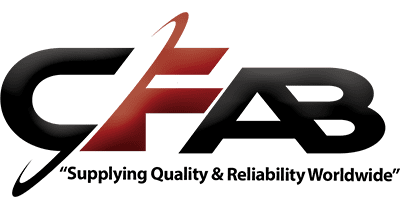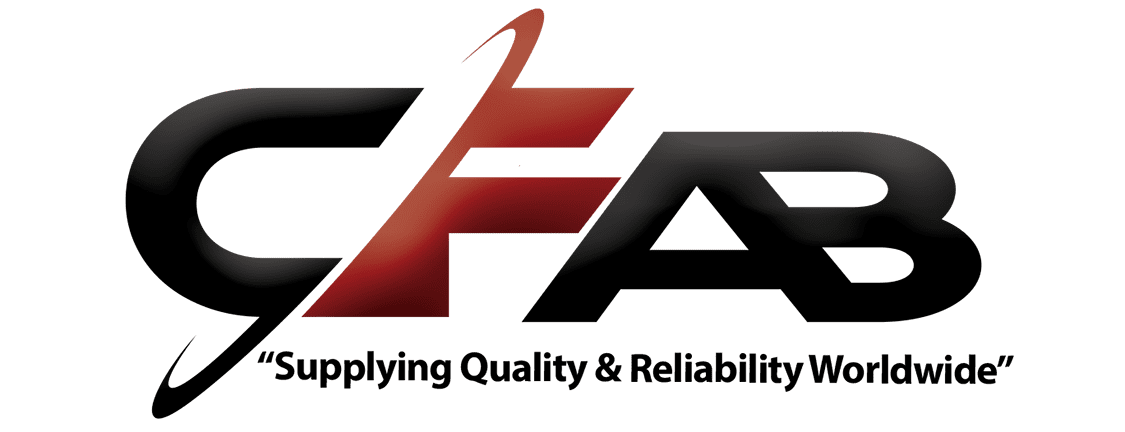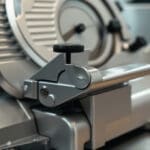Importance of Choosing the Right Tractor Dealers
When it comes to purchasing a tractor, one of the most crucial steps is selecting the right tractor dealers. This decision can significantly impact the performance, longevity, and overall satisfaction you experience with your equipment. Not all dealers are created equal, and knowing how to identify a reliable one can save you time, money, and potential headaches.
Quick Tips to Choose the Right Tractor Dealers:
- Consider Low Hour Tractors: Opt for dealers who sell tractors with fewer hours, ensuring minimal wear and more control over maintenance.
- Reputation and Reviews: Look for customer reviews and dealer reputation to ensure quality service.
- Range of Brands: Check if the dealer offers a variety of brands such as John Deere, Kubota, Kioti, and more.
- Service and Support: Confirm that the dealer provides robust after-sales service and support, including parts and repairs.
Choosing the right tractor dealer involves more than just finding the nearest location. Dealers vary in expertise, inventory, and quality of service, making it essential to conduct thorough research. Reliable dealers provide significant discounts compared to new tractors and better resale value in the future.
I’m Todd Cleppe, Executive Engineer and Sales at CFAB LLC. With over 25 years of experience in machinery solutions, I’ve helped countless businesses find their ideal tractor dealers, ensuring longevity and efficiency in their operations.

Understanding Your Needs
Choosing the right tractor dealer starts with understanding your specific needs. The first step is to assess your budget. Knowing how much you can spend will narrow down your options and help you make more informed decisions.
Next, consider the tasks you’ll be performing. Are you plowing fields, mowing large areas, or using attachments like front-end loaders? Different tasks require different types of tractors with specific features. For instance, if you need to handle heavy loads, a utility tractor with high loader lift capacity is essential.
The terrain you’ll be working on also plays a crucial role. Hilly or uneven terrain might require a tractor with four-wheel drive for better traction. On the other hand, flat land may not need such advanced features.
Criteria for Choosing the Right Tractor
When selecting a tractor, several criteria should be considered:
- Horsepower: This determines the tractor’s ability to perform heavy-duty tasks. Compact tractors typically range from 20 to 60 HP, while utility tractors can go up to 140 HP or more.
- Transmission Types: Choose between manual, hydrostatic, or CVT (Continuously Variable Transmission) based on your comfort and the tasks at hand.
- Loader Lift Capacity: Essential for tasks involving heavy lifting.
- Maintenance Requirements: Opt for models with low-hour usage to reduce the risk of missed service intervals.
Features and Options
Different tractor models come with a variety of features and options. For example, some models offer advanced hydraulic systems for smoother operation of attachments. Others may include climate-controlled cabs for comfort during long hours of work.
Knowing the features or options on each tractor model can make a huge difference in whether the tractor is the right one or not. Each machine is set up differently and may or may not meet your needs. So, if you’re in the market for a tractor and need help picking out the right used tractor, then please reach out. It’s one of the biggest decisions of your life and we’ll help get you set up with the right machine to meet your needs.
Understanding these factors will help you communicate your needs effectively when you approach a dealer. This ensures that the dealer can provide the best recommendations custom to your specific requirements.
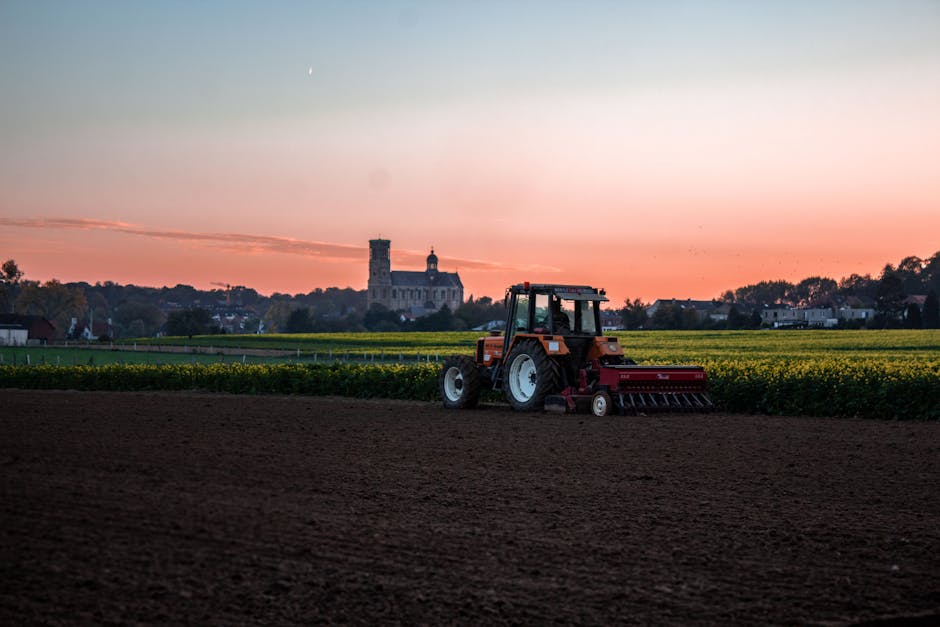
By knowing your needs in detail, you’re in a better position to evaluate the offerings from various tractor dealers. This leads us to the next important step: evaluating dealer reputation.
Evaluating Dealer Reputation
Choosing the right tractor dealer is crucial for a smooth purchasing experience and long-term satisfaction. Here are some key factors to consider when evaluating dealer reputation:
Dealer Reputation
A dealer’s reputation is often a strong indicator of their reliability and service quality. Look for dealers who have consistently positive feedback from customers.
Customer Reviews
Customer reviews can provide valuable insights into a dealer’s performance. Reading reviews on platforms like Google or Yelp can help you understand the strengths and weaknesses of a dealer.
Service Quality
The quality of service is another critical factor. Dealers with factory-trained technicians and extensive hands-on training ensure timely and accurate diagnoses and repairs. This can save you time and money in the long run.
Dealer Network
A robust dealer network can make a significant difference. Larger dealer networks offer more extensive parts availability and service options. However, be aware that fewer local dealers might mean higher costs and longer travel times for service.
By focusing on these factors, you can select a tractor dealer that meets your needs and provides reliable service and support. Next, let’s dig into the different types of tractors available and what you should consider when making your choice.
Key Factors to Consider When Choosing Tractor Dealers
When it comes to choosing the right tractor dealer, several key factors can make a big difference in your experience and satisfaction. Here’s what you should look for:
Dealer Expertise
A dealer’s expertise is crucial. Look for dealers who have been in the business for a long time and have a deep understanding of various tractor models. Experienced dealers will know the ins and outs of different brands and can guide you to the best choice for your specific needs.
Service Quality
Reliable service is a must. A good dealer will offer comprehensive service options, from routine maintenance to emergency repairs. They should have trained technicians who can quickly diagnose and fix issues, ensuring minimal downtime for your tractor.
Sales Operations
Efficient sales operations can make your buying experience smooth and hassle-free. Look for dealers who are transparent about pricing and offer clear, detailed information about each tractor. They should also provide assistance with financing options if needed.
Parts Support
Having easy access to parts is essential for keeping your tractor in top shape. Choose a dealer who has a well-stocked parts inventory and can quickly source any parts you need. This reduces the time your tractor is out of commission and keeps your operations running smoothly.
Marketing
Dealers who invest in marketing often have a broader range of products and services. They stay updated with the latest innovations and trends in the industry, which can benefit you as a customer. Plus, good marketing often reflects a dealer’s commitment to quality and customer satisfaction.
Customer Relations
Strong customer relations are a hallmark of a great dealer. Look for dealers who prioritize building long-term relationships with their customers. They should be responsive, attentive, and willing to go the extra mile to meet your needs.
Choosing a dealer who excels in these areas ensures you get the best service and support for your tractor needs. This sets you up for success and peace of mind, knowing you’re backed by professionals who care about your satisfaction.
Next, let’s dig into the different types of tractors available and what you should consider when making your choice.
Types of Tractors Available
When choosing a tractor, understand the different types available. Each type serves specific needs and tasks. Here’s a breakdown of the main categories:
Compact Tractors
Compact tractors are versatile machines that combine the power of larger tractors with the agility of smaller ones. They are ideal for tasks on small to medium-sized properties.
- Horsepower: Typically ranges from 20 to 60 HP.
- Loader Lift Capacity: Varies but can handle around 1,000 to 3,000 lbs.
- Transmission Types: Usually come with HST (Hydrostatic Transmission) or Shuttle transmission.
These tractors are perfect for landscaping, light construction, and general farm work.
Sub-Compact Tractors
Sub-compact tractors are smaller than compact tractors but pack a punch. They are designed for homeowners with smaller properties or those needing a tractor for lighter tasks.
- Horsepower: Ranges from 19 to 25 HP.
- Loader Lift Capacity: Generally between 600 to 1,000 lbs.
- Transmission Types: Commonly HST.
These tractors are great for mowing, light excavation, and hauling.
Utility Tractors
Utility tractors are larger and more powerful, suitable for heavy-duty tasks on large farms or commercial properties.
- Horsepower: Typically ranges from 40 to 100+ HP.
- Loader Lift Capacity: Can exceed 3,000 lbs.
- Transmission Types: Include Gear, Shuttle, and Power Shuttle.
These tractors excel in plowing, tilling, and other demanding agricultural tasks.
Loader Lift Capacity
Loader lift capacity is a crucial factor when choosing a tractor. It determines how much weight the front-end loader can handle, affecting what tasks you can perform.
- Light Tasks: 600 to 1,000 lbs (ideal for sub-compact tractors).
- Medium Tasks: 1,000 to 2,000 lbs (suitable for compact tractors).
- Heavy Tasks: Over 2,000 lbs (necessary for utility tractors).
Horsepower
Horsepower (HP) is another critical consideration. It affects the tractor’s ability to perform various tasks and handle different implements.
- Low HP (19-25): Suitable for small properties and light tasks.
- Medium HP (25-60): Ideal for medium-sized properties and versatile tasks.
- High HP (60+): Necessary for large properties and heavy-duty tasks.
Transmission Types
The transmission type affects the tractor’s ease of use and efficiency.
- HST (Hydrostatic Transmission): Offers smooth and easy operation, ideal for beginners and light tasks.
- Shuttle Transmission: Allows for quick direction changes, suitable for tasks requiring frequent forward and reverse movements.
- Power Shuttle: Provides even more convenience and efficiency, ideal for heavy-duty tasks and professional use.
Choosing the right type of tractor depends on your specific needs, tasks, and property size. Understanding these categories ensures you select a machine that will serve you well for years to come.
Next, let’s explore the top tractor brands and their offerings to help you make an informed choice.
Frequently Asked Questions about Tractor Dealers
Yes, CFAB tractors are known for their reliability and durability. CFAB is a trusted name in the agricultural machinery market, focusing on producing tractors that are robust, fuel-efficient, and easy to maintain. These tractors are designed to handle a variety of tasks and environments, making them a versatile choice for many farmers.
Who manufactures CFAB tractors?
CFAB tractors are manufactured by CFAB Global, ensuring they meet the specific needs of farmers worldwide. This focus on quality and performance makes CFAB tractors a preferred choice among those in the agricultural sector.
What are the most common problems with CFAB tractors?
While CFAB tractors are generally reliable, like any machinery, they can experience some issues. Common concerns might include:
- Hydraulic issues: Some models may face challenges with hydraulic systems, which are crucial for smooth operation.
- Electrical problems: Electrical systems are complex and may require maintenance to ensure optimal performance.
- Wear and tear: Regular use can lead to normal wear and tear, which needs to be managed through routine maintenance.
Regular maintenance and timely repairs are crucial to keep your CFAB tractor in optimal working condition, ensuring longevity and efficiency.
Conclusion
At CFAB Global, we understand the importance of choosing the right tractor dealer for your needs. Our Machine Reliability Program is designed to offer a holistic approach to machinery maintenance. This program includes customized analysis, premium services, cutting-edge equipment, and unparalleled support to keep your operations running smoothly.
Our services are custom to improve your productivity, minimize downtime, and extend the lifespan of your machinery components. By adopting our proven strategies, you can significantly mitigate the risk of production delays and ensure that all your equipment operates at peak efficiency.
Located in Chelsea, Iowa, CFAB Global has been a trusted partner in machinery support since 1998. We are committed to your success and strive to provide high-quality services that meet your unique needs. Whether you need help sourcing parts, constructing bespoke equipment, or installation services, we have you covered.
Trust CFAB Global to keep your farm machinery in top condition and ensure that you get the best return on your investment. For more information on how we can assist you, visit our Agricultural Machinery Parts page.
Choose CFAB Global, and let us help you achieve your full potential.
